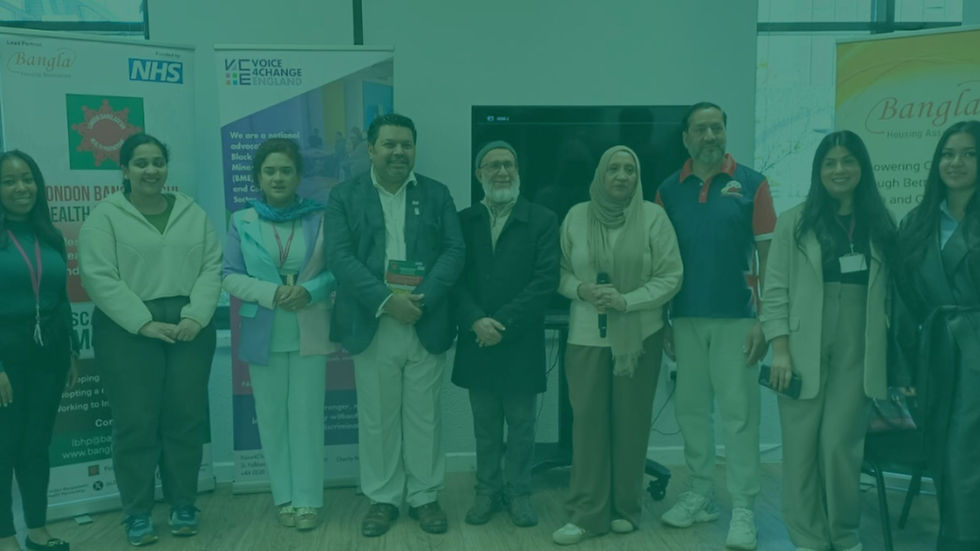Women and Housing – The Past and the Present
- Christabelle Quaynor

- Mar 6, 2025
- 3 min read
When it comes to women and housing reform, there is a long, strong history of resilience and activism.

In the 1970s and 1980s, feminist housing activism rose in response to the inadequate housing and support systems for women. As the housing crisis deepened, women in cities like London, Glasgow, and Manchester turned to squatting in abandoned buildings, creating women-only spaces that became refuges for those fleeing domestic abuse. These squats were not only homes but hubs of feminist action, offering solidarity and support while also providing platforms for cooperative businesses like feminist bookshops. By the 1980s, many of these squats evolved into housing co-ops, empowering women to learn new skills and create lasting infrastructures.

Women have always been at the forefront of advocating for better housing rights. One notable figure is Olivie Morris, a British Jamaican political activist who co-founded the Organisation of Women of Asian and African Descent and campaigned for squatters' rights. Another key figure, Octavia Hill, co-founder of the National Trust, revolutionised affordable housing by purchasing and managing 3,000 homes for London’s poorest communities, influencing the Housing of the Working Classes Act of 1890 and improving living conditions for the working class.

Today, the housing crisis is a national emergency in Britain, with record waiting lists, unmet housing targets, rising rents, and an escalating homelessness crisis that affects one in every 200 households.
Women experiencing homelessness face unique, often hidden challenges. They aren’t invisible—they are forced into hiding. Many turn to night buses, sofa surfing, or sleeping in disused cars to stay safe from violence and exploitation.
Unfortunately, current systems fail to recognise these realities. Homelessness is often defined in ways that overlook women’s experiences, leaving them out of crucial statistics, funding, and services. A 2023 census of women sleeping rough in England suggests the true number could be up to nine times higher than official government figures.
For migrant women—especially those from Black and minoritised backgrounds—face heightened vulnerability due to discriminatory policies, criminal justice system involvement, and the intersection of race, gender, and migrant status, leading to unsafe living conditions and exploitation. Many fear reporting abuse to the police due to fear of detention or deportation, and only 4% can access refuge accommodation.
To accelerate the creation of an inclusive, equitable world, we need a gender-responsive definition of homelessness—one that one that recognises and prioritises the diverse, intersectional experiences needs in both policy and service provision.
Domestic abuse continues to be one of the leading causes of homelessness for women. While the Domestic Abuse Act 2021 was a significant step, it desperately requires equal protection for migrant women. The lack of sustainable funding also leaves many services unable to meet the demand. Alarmingly, 44% of domestic abuse charities are running areas of their service without dedicated funding, and 80% rely on financial reserves to keep their operations going.
This International Women’s Day, we must take action to create long-term change. Let’s continue the legacy of pioneering women advocating for homes to help communities, wellbeing and safety. We need to include the lawful protection of migrant women under the Domestic Abuse Act 2021. We also need sustainable funding from local authorities to ensure homelessness services, particularly those supporting women and children, no longer must survive on reserves. By investing in safe housing, gender-responsive policies, and long-term support, we can break the cycle of hidden homelessness and create a future where every woman has a safe place to call home.
Civil society organisations such as Imkaan, Women’s Aid, The Fawcett Society, Womankind Worldwide and several others are already making a significant difference in gender equality spaces. We will continue to support them as they work to move women's experiences from the sidelines and place them at the centre of the conversation. Today is about celebrating women.
Voice4Change England will continue to accelerate action, spotlight and amplify women’s experiences, particularly those who are Black and Minoritised Ethnic, in our housing advocacy and policy work.
Help is available. If you or someone you know is experiencing domestic violence, please reach out to National Domestic Abuse Helpline – 0808 2000 247




Comments